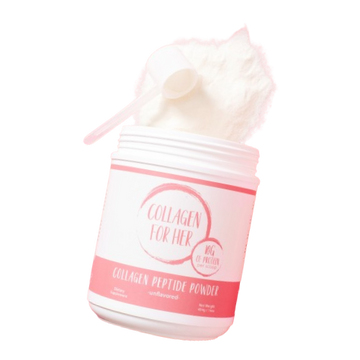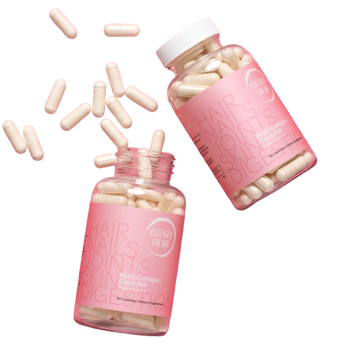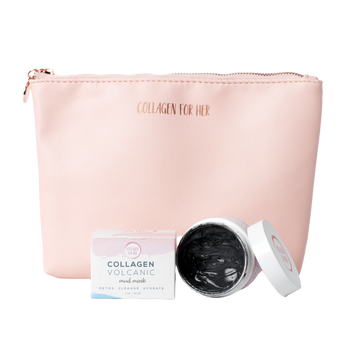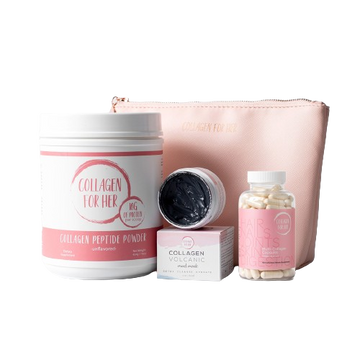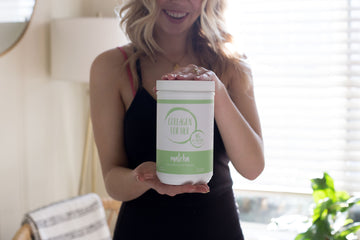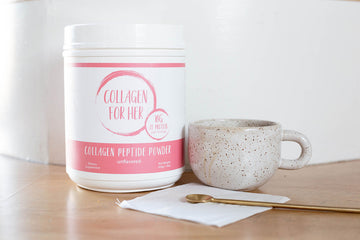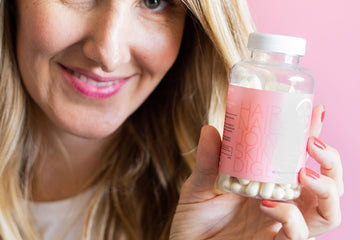Ever wonder what’s behind those elastic and porcelain-like skin? Aside from hydrating and feasting on fruits and a balanced diet, collagen also plays a big part in making your skin look velvety and smooth. Let's start with the basics and then dive into how we can help our bodies produce more collagen!
What is collagen?
The first thing that probably comes into your mind when you hear collagen is the wide range of skincare products you see when shopping for your daily face routine, which is true—you can get collagen from a lot of skin essentials. But the amazing thing is, our bodies produce collagen by themselves.
Collagen is one of the most abundant proteins in the body that plays a role in your skin’s appearance. Aside from the skin, collagen is also found inside your body. It is a powerful nutrient that contributes inside and out of your body—from the face down to your bones, tendons, muscles, and ligaments’ health.
How can I benefit from collagen?
Collagen gives your body tissues toughness and rigidity. It is also responsible for that facelift that provides the structure and strength of your skin. You can even see its effects on the skin around your eyes—so, those eye bags may be a sign of collagen deficiency!
In other words, the more collagen you have in your body, the more youthful you can look. Even if you can’t exactly count the collagen in your body, you would notice some changes in your body that can be a sign of not having enough collagen like:
- Wrinkles
- Thinning and sagging skin
- Weakening muscles
- Stiff joints
These signs become more noticeable as you get older because our body produces less and less collagen as we age, therefore causing external signs of aging.
What are some ways to help increase collagen production?
While there is no single method to increase collagen production in every person, here are five ways you can help your body increase collagen production.
-
Eat protein-rich foods
Collagen is produced naturally inside our body from the protein-rich foods we eat. These are not limited to lean meats, poultry, or seafood. Beans, nuts, and dairy products are also high in protein. Our body also needs vitamins and minerals to process this, particularly Vitamin C, copper, and zinc. Including these kinds of food in your diet will naturally increase your collagen production.
-
Include natural antioxidants in your diet
Antioxidant-rich foods are fruits like apples, blueberries, grapes, and pomegranates, and also from plant-based products like coffee, green tea, cinnamon, and onions.
Taking in antioxidants naturally preserves or prevents your body from cell damage caused by free radicals. Antioxidants do not directly help produce collagen but rather enhance the effects of the collagen that you have.
-
Protect your skin with the right skincare products
Your skin naturally sheds dead cells every day and is replaced with healthy ones. But, there are environmental factors such as pollution, changing weather, and exposure to the sun that negatively affects your skin. Pro tip: use sunscreen and choose moisturizing products that are best suited for your skin! These skincare must-haves prevent skin damage caused by various environmental factors and reduce aging skin!
However, it does not mean that you will only do skincare when you go outside. Your skin needs constant attention to produce enough collagen, especially if you have sensitive skin. So, it matters that you choose the right products that work for you. And more than that, consistency in use.
-
Avoid an unhealthy lifestyle
Generally, unhealthy practices like smoking can deplete your collagen levels faster. Tobacco products have nicotine that slowly compromises blood vessels, therefore reducing the ability of your body to deliver nutrients throughout your system. Then, tobacco smoke also subtly damages your skin. It causes damage to collagen present in your skin.
Other things to avoid are high sugar intake and caffeine consumption. It has inverse effects on collagen production. Instead of producing collagen for your skin and other parts of your body, it makes something else and has by-products as well, that damages the collagen in your body.
-
Add a collagen supplement to your routine
If there’s anything we can’t control, it’s aging. During this period, your body cannot process nutrients the way it used to be. So, even if you constantly eat protein-rich foods, you may need to have other sources of collagen, such as supplements.
Collagen supplements provide a variety of benefits to your health like they may improve your skin health, reduce joint pain, and strengthen your muscles and bones. It can also give a healthy glow that can make your skin look younger and fresh.
If you are looking to add a collagen supplement to your diet, look no further. Shop all Collagen For Her supplements here or learn which product is best for you here!
Bottom line: Collagen is your skin’s best friend.
A healthy diet and enough hydration can help in naturally increasing the collagen in your body, but adding a collagen supplement to your diet is also a great way to help your body replenish the collagen that it naturally loses overtime.
If you’re looking for a high quality collagen supplement, look no further! Shop all Collagen For Her supplements here or learn which product is best for you here!


